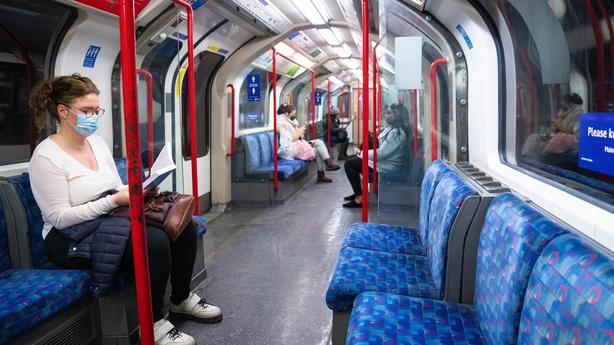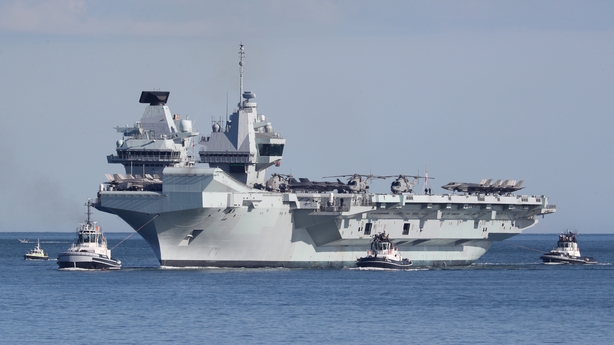Travellers returning to England from the Balearic Islands from next week will have to quarantine at home unless they have had both Covid vaccines following a change in government policy.
The Balearic Islands have been added to the amber travel list a little over a fortnight after they went green, while quarantining on return from Croatia and Bulgaria will end.
Spain's tourist hotspots of Ibiza, Mallorca, Menorca and Formentera will be removed from the green list exempting all need to self-isolate to England from Monday due to concerns over rising coronavirus cases.
But the change will coincide with the end of the need to quarantine for fully-vaccinated UK residents and the under 18s when returning from amber list nations.
In a boost for holidaymakers, Croatia will go green, meaning arrivals in England will not have to isolate for 10 days on return regardless of their vaccine status.
Hong Kong and Taiwan will also go green, while the British Virgin Islands will be added to the amber list.
Cuba, Indonesia, Myanmar and Sierra Leone will go red, meaning 10 days of isolation in a quarantine hotel are mandatory.
Transport Secretary Grant Shapps said the changes will take place at 4am on Monday.
The moves do not mean travel as normal, however, with a pre-departure test being required as well as another two days after returning back in England, even from green nations.
Ibiza, Mallorca and Menorca are also being added to Scotland's amber travel list, the Scottish Government has said.
It said the decision - to take effect from 4am on Monday - was reached on a four nations basis and follows the
announcement earlier from Mr Shapps.
Scotland's Minister for Environment, Biodiversity and Land Reform Mairi McAllan said: "From the outset we have said caution is required regarding international travel and people should think very carefully about travelling abroad as situations can suddenly change.
"When we added the Balearic Islands to the green list we said we would be closely monitoring the data, and the increase in cases we have seen means we now have to take it off the green list."
Retain face coverings on London public transport - Sadiq Khan
London Mayor Sadiq Khan has called for use of face coverings to remain compulsory on public transport in the British capital after government plans to relax Covid-19 curbs begin on 19 July.
Under the plans passengers on Transport for London (TfL) services, which include the city's tube, bus, tram and rail networks, would be required to wear a face covering after an England-wide requirement ends under plans set out by Prime Minister Boris Johnson's government.
"I've repeatedly made clear that the simplest and safest option would have been for the government to retain the national requirement for face coverings on public transport," Mr Khan said in a statement.
"I'm not prepared to stand by and put Londoners, and our city's recovery, at risk. This is why, after careful consideration, I have decided to ask TfL to retain the requirement for passengers to wear a face covering on all TfL services," he added.
Mr Johnson and his Health Secretary Sajid Javid have said all virus curbs in England will be removed on 19 July in a transition from enforceable Covid-19 rules to personal responsibility.

But the move has driven concern among scientists who have warned the decision to unlock has been made too quickly and could lead to a dramatic rise in infections.
"By keeping face masks mandatory we will give Londoners and visitors the reassurance and confidence to make the most of what our city has to offer, while also protecting our heroic transport workers," Mr Khan said.
"It's an extra layer of protection on top of TfL's world-leading enhanced cleaning regime - and I'm sure Londoners will continue to do the right thing as they have done throughout the pandemic, and continue to wear a face covering on TfL services," he added.
Covid-19 outbreak on Royal Navy ship
Britain's Royal Navy flagship HMS Queen Elizabeth has been hit by an outbreak of Covid-19.
The aircraft carrier is about a quarter of the way through a 28-week deployment leading the CSG, which includes a US destroyer and ten Marine Corps F35-B fighters, and is currently in the Indo-Pacific.

A Royal Navy spokesman said in a statement: "As part of routine testing, a small number of crew from the Carrier Strike Group have tested positive for Covid-19.
"All personnel deployed in the UK CSG have received both doses of the Covid-19 vaccine and there are a number of mitigation measures on board including masks, social distancing and a track and trace system.
"The Carrier Strike Group will continue to deliver their operational tasks and there are no effects on the deployment."
Additional reporting PA

